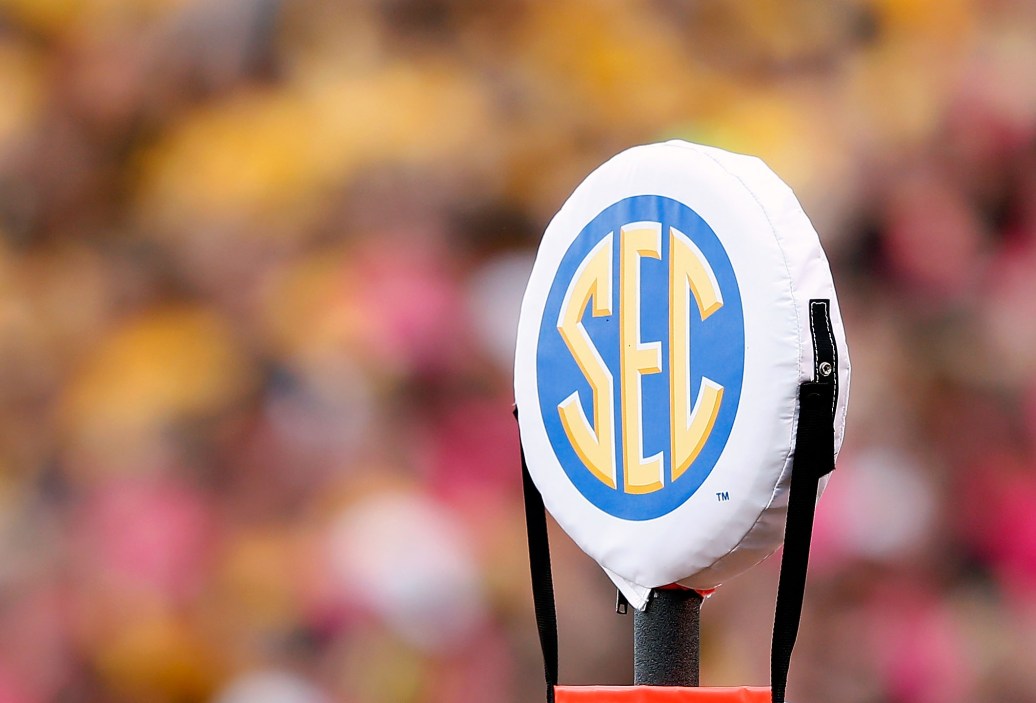Look for some particularly significant rule changes inside the SEC next season. SEC's head of officials, Steve Shaw, met with the media during SEC meetings in Destin, Fla. One of them is regarding tripping a ball carrier. Shaw stated that players are no longer able to able to stick out their lower leg to trip the ball carrier. Tripping had previously been a penalty in the SEC with the exception being that it was legal to trip the ball carrier — all other players were off-limits. Now, that's not the case.
Videos by FanBuzz
Shaw cites a new rule change that tripping the runner will be a penalty this season.
— Chuck Dunlap 🏈 (@SEC_Chuck) June 2, 2016
Some other rule changes discussed from Shaw are below. You can see the full list from the SEC's website.
- Technology for coaching purposes is being delayed for further discussion until the 2017 season by the rules committee. Coaches could access computer tablets and video in the coaches' booth and locker rooms, but not on the field like they do in the NFL. SEC coaches were unanimous in support of in-helmet communication.
- Ball carriers that are sliding are now protected under the "defenseless play" portion of the targeting rules. A ball carrier who has given himself up and is sliding feet first will now be considered a defenseless player.
- Head coaches are now allowed to request that one of the allowed three timeouts in each half be a full timeout. Shaw added that this has to be communicated to the referee when the timeout request is made. During overtime periods, the one allowed charged team timeout may be a full timeout at the request of the head coach.
- The replay official shall review all targeting fouls. The review includes all aspects of the targeting foul to ascertain whether there is at least one indicator of targeting action.
- The replay official may create a targeting foul only in egregious instances in which a foul is not called by the officials on the field. Translation: If a ref gets in the way of a play and it results in a hit considered targeting, the penalty will not be called.
